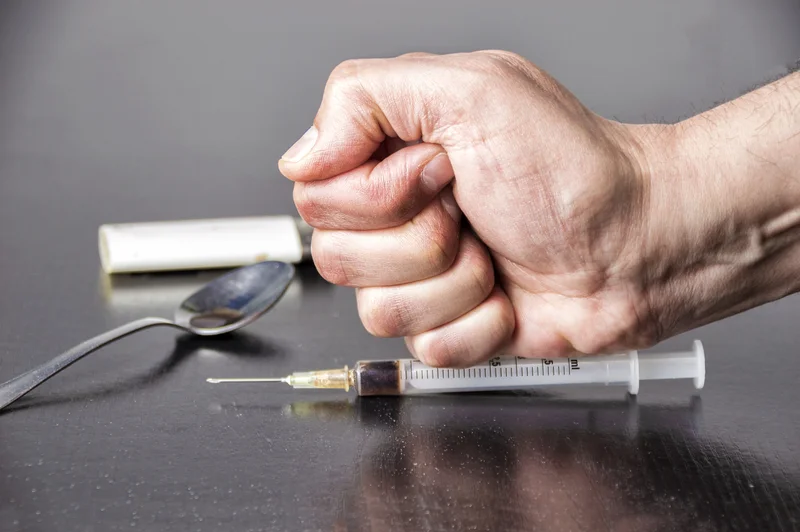
This is typically more than just feeling queasy, but severe abdominal cramping and https://ecosoberhouse.com/ retching that occurs very soon after drinking alcohol. This nausea and vomiting will differ from vomiting that can happen when drinking in that it will be very soon after drinking, occurring suddenly and intensely. Alcohol intolerance is a medical condition that prevents your body from breaking down alcohol normally.

Common Questions & Answers
This sensation might be accompanied by sweating as the body attempts to cool itself down, and it can be followed by chills as the effects of the alcohol wear off. Certain types of alcohol —such as red wine — may be more likely to cause hot flashes than others due to chemicals that affect the body’s ability to regulate temperature. Alcohol speeds up digestion, causing the muscles in the intestines to contract more often and leading to diarrhea. Moreover, alcohol can lead to an inflammatory response in the gut, which can exacerbate the effect. While acetaldehyde plays a significant role in alcohol-induced tachycardia, it’s not the sole player. Alcohol itself has a direct effect on the heart and blood vessels by triggering the release of stress hormones such as adrenaline, which stimulates the heart to beat faster.

Why am I Suddenly Sensitive to Alcohol?
COVID-19 is a new disease, and much research is still being done on its long-term effects. While there is no evidence to suggest that the after-effects of COVID are likely to cause alcohol intolerance, new evidence may emerge as research continues. These can amplify alcohol’s effects, making you feel more drowsy, dizzy, or out of sorts after just one glass. According to Dr. Daniel Hall-Flavin of the Mayo Clinic, “it’s best to avoid combining antidepressants and alcohol. It may worsen your symptoms, and it can be dangerous.” When mixed with alcohol, they can cause a buildup of acetaldehyde, a toxin that makes you feel flushed, sick, and ready to swear off alcohol altogether. Additionally, people may seek support from family and friends or advice from a medical professional if they require longer-term support.
Can alcohol intolerance after pregnancy be a sign of an underlying
It is characterized by the body’s inability to adequately break down and metabolize alcohol. This intolerance is often caused by a deficiency in drug addiction treatment the enzyme responsible for processing alcohol, such as alcohol dehydrogenase or aldehyde dehydrogenase. Alcohol intolerance is a condition that occurs when the body is unable to efficiently metabolize alcohol, resulting in immediate and uncomfortable reactions. This intolerance is primarily attributed to a genetic basis and can manifest through various symptoms. At Orlando Recovery Center Drug and Alcohol Rehab, we offer many alcohol addiction treatment options led by trained medical professionals.
- For more personalized support, you also have the option to get in touch with our certified Reframe coaches.
- So a thorough review is required to confirm if an individual has the disease.
- If you have an underlying medical condition, symptoms may be more severe and prolonged.
- Nasal stuffiness and congestion are almost always present in those with alcohol intolerance.
- Although alcohol intolerance usually isn’t a serious issue as long as you don’t drink alcohol, you might want to discuss it with your doctor at your next appointment.

The best way to prevent alcohol intolerance is to limit or avoid alcohol consumption. Finally, a person may develop sudden alcohol intolerance because of an immune system reaction. In some cases, the immune system will recognize an ingredient in a particular alcoholic beverage and trigger an allergic or intolerant reaction. The length of time it takes for alcohol intolerance symptoms to go away depends on the severity of the symptoms experienced and the underlying cause of the reaction.
How to Diagnose an Alcohol Allergy?
- It’s possible that your sensitivity is a symptom of a greater underlying health issue, such as anemia or liver disease.
- Over-the-counter (OTC) or prescribed medications might help reduce symptoms.
- Alcohol intolerance can cause immediate, uncomfortable reactions after you drink alcohol.
- During the hydrogen breath test, you’ll drink a liquid with a high concentration of lactose.
People of East Asian descent are more likely to have the inherited genetic mutation that causes alcohol intolerance, so they develop the condition at higher rates. These stats are particularly troubling because a simple blood test along with a medical history and physical exam can help a healthcare provider diagnose Alpha-Gal Syndrome. One way to know for sure is to ask your healthcare provider for a specific IgE blood test or more specifically, a component blood test. (More on that later.) Together with your medical history and a physical exam, blood testing can help your provider home in on a diagnosis. Nausea, headaches, sensitivity to light and sound are all common symptoms of a hangover, and most of these will go away over time as the body works to process alcohol. A alcohol intolerance symptoms sudden feeling of warmth can indicate the body’s inability to process alcohol.

Alcohol Intolerance: Causes, Symptoms, and How to Manage It
- When doctors diagnose alcohol intolerance, they typically use the immediate symptoms it causes.
- Alcohol may leave the body more slowly (or more quickly) in certain people compared to other people.
- While there is some variation, most of these symptoms will be similar for everyone.
- If you suspect an underlying disease is contributing to alcohol intolerance, seeking medical evaluation is important.
It is made by the liver and breaks alcohol down into a substance like vinegar. If your body starts making less of this enzyme, you may develop a sudden intolerance to alcohol. If you can’t break the alcohol down, it stays in your bloodstream and can be toxic.














